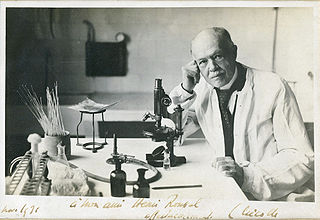A Quote by Thomas Sowell
What then is the intellectual advantage of civilization over primitive savagery? It is not necessarily that each civilized man has more knowledge but that he requires far less.
Related Quotes
Savage peoples are ruled by passion, civilized peoples by the mind. The difference lies not in the respective natures of savagery and civilization, but in their attendant circumstances, institutions, and so forth. The difference, therefore, does not operate in every sense, but it does in most of them. Even the most civilized peoples, in short, can be fired with passionate hatred for each other.
More and more, as civilization develops, we find the primitive to be essential to us. We root into the primitive as a tree roots into the earth. If we cut off the roots, we lose the sap without which we can't progress or even survive. I don't believe our civilization can continue very long out of contact with the primitive.
Rebellion against technology and civilization is real rebellion, a real attack on the values of the existing system. But the green anarchists, anarcho-primitivists, and so forth (The "GA Movement") have fallen under such heavy influence from the left that their rebellion against civilization has to great extent been neutralized. Instead of rebelling against the values of civilization, they have adopted many civilized values themselves and have constructed an imaginary picture of primitive societies that embodies these civilized values.
Each member of society can have only a small fraction of the knowledge possessed by all, and...each is therefore ignorant of most of the facts on which the working of society rests...civilization rests on the fact that we all benefit from knowledge which we do not possess. And one of the ways in which civilization helps us to overcome that limitation on the extent of individual knowledge is by conquering intelligence, not by the acquisition of more knowledge, but by the utilization of knowledge which is and which remains widely dispersed among individuals.
Civilization enables us constantly to profit from knowledge which we individually do not possess and because each individual's use of his particular knowledge may serve to assist others unknown to him in achieving their ends that men as members of civilized society can pursue their individual ends so much more successfully than they could alone.
In fact a man in love or one consumed with hatred creates symbols for himself, as a superstitious man does, from a passion of conferring uniqueness on things or persons. A man who knows nothing of symbols is one of Dante's sluggards. This is why art mirrors itself in primitive rites or strong passions, seeking for symbols, revolving round the primitive taste for savagery, for what is irrational (blood and sex).
How far men go for the material of their houses! The inhabitants of the most civilized cities, in all ages, send into far, primitive forests, beyond the bounds of their civilization, where the moose and bear and savage dwell, for their pine boards for ordinary use. And, on the other hand, the savage soon receives from cities iron arrow-points, hatchets, and guns, to point his savageness with.
To be clear, civilization is not the same as society. Civilization is a specific, hierarchical organization based on 'power over.' Dismantling civilization, taking down that power structure, does not mean the end of all social order. It should ultimately mean more justice, more local control, more democracy, and more human rights, not less.
One of the most dangerous errors is that civilization is automatically bound to increase and spread. The lesson of history is the opposite; civilization is a rarity, attained with difficulty and easily lost. The normal state of humanity is barbarism, just as the normal surface of the planet is salt water. Land looms large in our imagination and civilization in history books, only because sea and savagery are to us less interesting.
Our civilization is not Christian. It does not come from the skies. It is not a result of inspiration. It is the child of invention, of discovery, of applied knowledge - that is to say, of science. When man becomes great and grand enough to admit that all have equal rights; when thought is untrammeled; when worship shall consist in doing useful things; when religion means the discharge of obligations to our fellow-men, then, and not until then, will the world be civilized.
And this is the ultimate lesson that our knowledge of the mode of transmission of typhus has taught us: Man carries on his skin a parasite, the louse. Civilization rids him of it. Should man regress, should he allow himself to resemble a primitive beast, the louse begins to multiply again and treats man as he deserves, as a brute beast. This conclusion would have endeared itself to the warm heart of Alfred Nobel. My contribution to it makes me feel less unworthy of the honour which you have conferred upon me in his name.
Small wonder our national spirit is husk empty. We have more information but less knowledge. More communication but less community. More goods but less goodwill. More of virtually everything save that which the human spirit requires. So distracted have we become sating this new need or that material appetite, we hardly noticed the departure of happiness


































